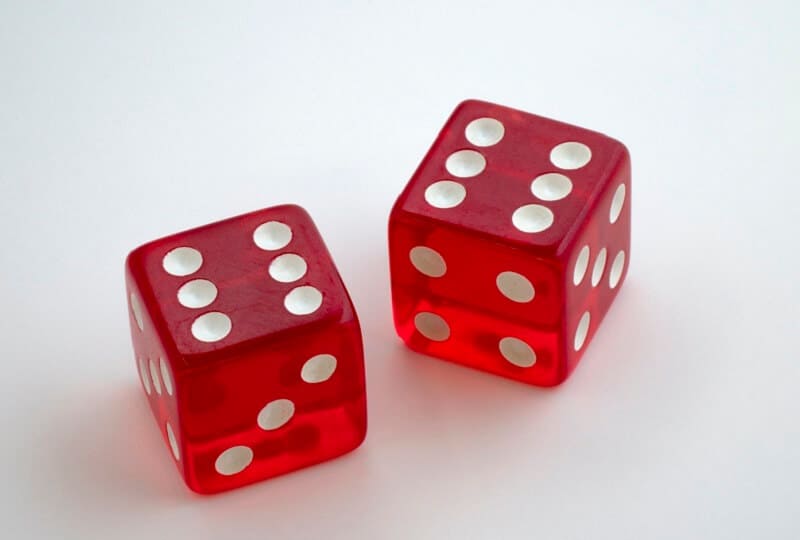
Trading stocks is not a zero-sum game and both sides can be winners.
By Guy Avtalyon
Is trading stocks a zero-sum game is sometimes more rhetorical question than it is related to trading. But shouldn’t be. In stock trading, we have two different sides. One is represented by winners, the other includes losers. On any transaction in the stock market, the chances of winning and losing are near even. So, who are the winners and losers of this zero-sum game?
Winners have better portfolios, they are usually long-term traders, they can sustain seldom losses because their investment horizon is larger. On the other hand, traders that frequently place trades, have losses more often. So, the profits and losses of all traders should sum to zero if trading stocks is a zero-sum game, right?
Trading stocks is mathematically a zero-sum game is a logical conclusion. However, it is more complicated.
Who wins and who loses when trading stocks?
Trading is a zero-sum game only when you measure gains and losses relative to the market average. In the zero-sum game, there is always one winner and one loser. The amount that one trader profit has to be equal to the amount the other loses. That would mean the winners can profit only the amount that losers are ready to lose.
This is true, but we come to something known as market capitalization. That’s the number of company’s shares outstanding and times by its market price per share. The volume of transactions is comparably small related to shares outstanding. The stock price could appreciate or depreciate only if traded below or above the market price. When traders hold their positions no one could lose or win. But when traders choose to exit their positions, some will be winners while the other will be losers. Yes, to this point everything is clear but trading isn’t a poker game where the winner takes it all. It is the opposite a bit.
Is trading stocks a zero-sum game?
The stock market is an open system. The presumption that trading stocks is a zero-sum game comes from another presumption that the stock market is established by a constant and non-changeable number of securities traded. That would mean no stocks or other assets enter, no exit. As we know the reality is different. Publicly traded companies can issue more stocks and also they can buy back their shares to increase the price while diminishing the number. Also, some companies declare bankruptcy and become not publicly traded or bought by other companies. So, the stock market is a kinda living being. It isn’t constant or fixed.
Trading stocks is a zero-sum game if one trader gains only what the other loses, both expressed in money. When both buyer and seller strive for the same thing, we can say it is a zero-sum game. But trading stocks is connected with liquidity, risk management, etc. It isn’t just about money. There is something in the character and outlook of the participants. If they are similar the aims will be similar too, and the trading could become a zero-sum game.
Trading stocks is zero-sum only when the competition is excellent, only when it is perfect. That would mean the traders on both sides, buyers and sellers, have the same information and make decisions that lead in the same direction to the same conclusion. For example, the ABC company’s stock price is going to drop. Buyers and sellers both have that information and buyers would like to buy that stock at a lower price while the sellers would like to sell it at a higher price. When their particular interests match each other the trade occurs. Only then, we can talk about trading stocks as a zero-sum game.
Is day trading a zero-sum game?
Day trading could be a zero-sum game. Here we can find an equal number of winners and losers. The most popular markets among day traders are options and futures markets which are zero-sum markets. How does this work?
Let’s say you\re the one who holds the option that makes a profit. On the other side is the trader who wrote the option. The second trader, the seller of that option will lose the same amount.
Who are the winners and who are the losers in a zero-sum market?
You may think that all depends on luck. But you’re wrong. The real winners are traders with discipline. The winners have a trading plan, they know where and when to set limits, and never trade based on emotions. Instead, they use accurate data. So, the futures and options markets are zero-sum game markets.
But when we come to the stock market it could be real nonsense to claim it is a zero-sum game.
Where is the difference?
Let’s say, for example, if the economy is growing, companies’ profits rise, what is going to happen? How could this condition influence the stock price? Of course, the stock price will increase. In such circumstances, we will have more winners than losers among traders. Especially among long-term participants. Of course, some days it is possible to see more losers. That is the reason why some people understand the stock market as a zero-sum game.
Trading stocks isn’t a zero-sum game
All trades in the stock market are based on future expectations. Every single trader has different risk tolerances. The market always counts on it. If part of traders are selling their stocks that does not necessarily mean they are losers. Every trader has a particular and different goal when trading. For example, one can decide to hold the position until making a particular profit. So, what does a trader have to do when reaching it? Such a trader will exit the position to book profit, it’s so natural. The trader who is buying that stock may end in losses since there is no guarantee he/she will profit also. But what if the second trader proceeds profiting? Can you see, both sides, seller and buyer are winners.
Bottom line
So, trading a stock market is a more win-win situation than a zero-sum game. When trading stocks always keep in mind that some stocks pay dividends. That is an important factor when discussing stock trading as a zero-sum game. It isn’t rare for investors to get more money from dividends, even more than their initial investment was. The stock trading isn’t just a relation among sellers and buyers, it is more. That’s why we can’t say stock trading is a zero-sum game.



Leave a Reply